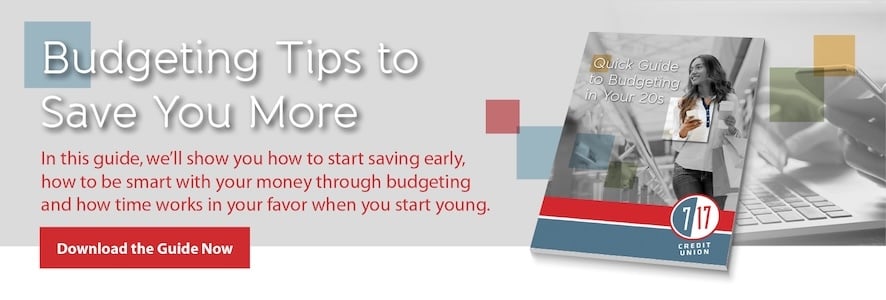- Francesca Sacco
Expense Tracking Template: Use This To Track Your Monthly Budget

When it comes to managing your money and improving your awareness of your own spending habits, an expense tracking solution can be exactly the tool you need to take the next steps in improving your financial wellness.
Expense tracking often goes hand-in-hand with creating a personal budget because both processes are meant to improve your ability to manage your money, spend within your means and achieve your financial goals. An expense tracking template can be particularly valuable in monitoring your actual spending habits and adding up the total costs you’re incurring across a number of spending categories.
Eager to get started with expense tracking? Here’s a quick guide to building your own and using it in your daily life.
1. List all of your expense categories.
If you already have a budget set up, this should be an easy process. Expense categories are the best way to organize your expenses into groups that will help you assess and understand your spending habits.
Don't have a budget set up? Not to worry. Simply review your past expenses and list each category represented among that spending history. As you start tracking your own expenses, you can place them into the appropriate categories in your spreadsheet or expense tracking tool.
2. Use your personal budget to set spending limits for each category.
Your personal budget can also be used to define spending limits for your expense categories.
Although this isn’t a necessary feature of an expense tracking template — especially since your personal budget can help you compare spending costs to your desired spending limits — it allows you to sort and view all of this information in one place.
By including spending limits in your expense tracking, you can quickly monitor your progress in sticking to your budgeted levels and, if needed, make appropriate changes to get back on track. This harnesses expense tracking for its greatest financial benefits.
3. Add new line expenses as you make charges to your credit cards or checking accounts.
If you’re using an expense tracking template to track your spending manually, you’ll need to check all of your spending accounts regularly — perhaps even daily — and add new charges to your template.
Although this may seem tedious, it can also increase your awareness of your spending. Manual expense tracking offers a similar benefit to the ”envelope” method of budgeting by forcing you to be more aware of the purchases you make, rather than making it easy to spend blindly — which is one of the biggest problems of making purchases with a credit card.
4. Use a simple template option for your expense tracking.
If you’re eager to try expense tracking but don’t know where to start, the easiest option is a simple spreadsheet-based tracking system.
To get you started, here’s a basic template you can use to start tracking your expenses and adding them up in comparison to your monthly budget:
|
Monthly Take-Home Pay (Net Income) |
||
|
Total Monthly Budget |
$0 |
$0 |
|
Amount Left Over |
$0 |
$0 |
|
Expense |
Budget |
Actual Spend |
As you get the hang of expense tracking, you may choose to customize this template and add new information and data points to track. Feel free to adapt this template to help you better improve your spending awareness and your money management.
Bonus tip: Pick the right tool to manage expense tracking.
As you develop your plan for managing expense tracking, you may find that manually tracking this information is sometimes tedious and also prone to human error.
Consumers who are serious about expense tracking may eventually see the value in using a money management app to automatically track and categorize expenses. Thanks to integrations with your banking and other financial apps, these tools are not only faster but also automated in some cases. They also offer the added benefit of more robust data tracking and analytics, helping you generate meaningful insights to further improve your money management.
Looking for additional resources and expert guidance to improve your money management? Your local credit union offers in-house financial specialists, as well as powerful online and mobile tools, to help you take better control of your finances.
Access all of these resources by becoming a member today. Open a checking account to get started.
